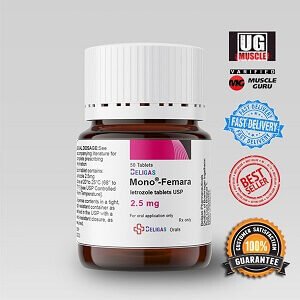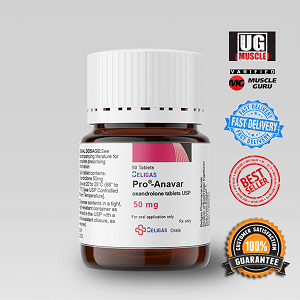Introduction to Testosterone Enanthate
Testosterone Enanthate is a synthetic form of testosterone, primarily known for its role as both an androgen and anabolic steroid. Chemically, it consists of the testosterone molecule bound to the enanthate ester, which facilitates a gradual release of the testosterone hormone into the body once administered. This inherently results in sustained levels of testosterone in the bloodstream, making it a preferred choice for long-term testosterone replacement therapy (TRT).
The primary medical use of Testosterone Enanthate is to address hypogonadism, a condition characterized by insufficient testosterone levels in men. It is also prescribed for certain types of breast cancer in women, and for inducing puberty in boys experiencing delayed onset. Beyond these therapeutic applications, it plays an essential role in hormone therapy for transgender men.
To fully understand its significance, delving briefly into its history is imperative. Testosterone was first synthesized in the early 1930s, paving the way for various forms of the hormone to be developed. The enanthate ester of testosterone gained prominence due to its pharmacokinetic profile, which allows for less frequent injections compared to other forms. Over the decades, numerous health authorities, including the United States Food and Drug Administration (FDA), have approved Testosterone Enanthate for medical usage, ensuring its safety and efficacy through rigorous clinical testing.
Hence, Testosterone Enanthate is recognized widely within medical circles, not only for its therapeutic benefits but also for its structured mechanism of action. Its development marks a significant breakthrough in endocrinology and continues to be a cornerstone in the treatment of testosterone deficiency. Understanding these foundational aspects sets the stage for a more nuanced exploration of its uses, benefits, and associated risks, which will be dissected in subsequent sections of this comprehensive guide.
Medical Uses and Benefits
Testosterone Enanthate is widely recognized for its role in testosterone replacement therapy (TRT), particularly for men experiencing hypogonadism. Hypogonadism is a medical condition characterized by the body’s inability to produce adequate levels of testosterone. In such cases, Testosterone Enanthate offers a vital solution. This treatment helps in alleviating various symptoms associated with low testosterone levels, including diminished energy, decreased libido, depressive moods, and physical weakness.
Beyond its primary application in TRT, Testosterone Enanthate serves multiple other medical purposes. It is effectively employed in treating delayed puberty in males, helping stimulate the onset of male secondary sexual characteristics such as deepening of the voice and the growth of facial and pubic hair. Additionally, it finds use in certain types of breast cancer treatments in women, where it acts by inhibiting the growth of hormone-sensitive tumors.
One notable off-label use of Testosterone Enanthate is in the management of osteoporosis. This condition, characterized by weak and brittle bones, can benefit from the bone density improvements facilitated by the hormone therapy. By enhancing the mineral content in bones, Testosterone Enanthate can contribute to a reduced risk of fractures and overall improved skeletal health.
Furthermore, athletes and bodybuilders often report increases in muscle mass and strength as a benefit of Testosterone Enanthate, although this usage is not considered medical and may be subject to legal restrictions. In controlled clinical environments, the hormone positively influences muscle protein synthesis, leading to greater muscle mass and physical performance improvements for those who medically require it.
Overall, the multifaceted applications and benefits of Testosterone Enanthate demonstrate its essential role in modern medicine. From addressing hormonal deficiencies and managing delayed puberty to offering potential advantages in osteoporosis treatment and certain cancers, its utility spans a range of critical health concerns.
Administration and Dosage
Testosterone Enanthate, a widely used anabolic steroid, is predominantly administered through intramuscular injections. Typically, injections are provided in the gluteal muscles to ensure optimal absorption and effectiveness. The frequency and dosage vary based on the individual’s medical condition, age, weight, and objectives, whether for Testosterone Replacement Therapy (TRT) or performance enhancement.
For patients undergoing TRT, the usual dosage ranges from 50 mg to 200 mg once every two to four weeks. This regimen aims to restore normal testosterone levels in men with hypogonadism and other related disorders. In contrast, for performance enhancement, athletes and bodybuilders often use substantially higher doses, ranging from 200 mg to 600 mg per week. However, such usage warrants medical supervision due to the risks of adverse effects.
The dosage also needs to be meticulously tailored based on several factors. Age is a crucial determinant since older individuals may metabolize the drug differently than younger adults. Body weight plays a role as well because it influences the body’s distribution and clearance of the medication. Additionally, coexisting medical conditions, particularly those related to cardiovascular and liver health, must be considered when determining the appropriate dosage.
One must also deliberate on the method of administration – self-administration versus professional administration. While self-administration provides convenience and privacy, it necessitates thorough knowledge and training on sterile injection techniques to prevent infections and complications. Professional administration by healthcare providers assures accurate dosing and reduces the likelihood of errors such as injecting into blood vessels or nerves.
Following medical advice rigorously cannot be overstated. Incorrect dosing not only diminishes the therapeutic benefits of Testosterone Enanthate but also poses significant health risks such as hormonal imbalance, cardiovascular strain, and liver toxicity. Therefore, it is essential for individuals to adhere to prescribed dosages and schedules, and consult healthcare professionals regularly to monitor their health status and adjust dosages if necessary.
Potential Risks and Side Effects
While Testosterone Enanthate is utilized for its therapeutic benefits, users must be mindful of the potential risks and side effects associated with its use. Common side effects can include dermatological concerns such as acne and hair loss. Mood swings are another prevalent issue, often manifesting as increased aggression or irritability. Changes in libido, encompassing both heightened and reduced sexual drive, can also occur.
More serious side effects warrant closer attention. The cardiovascular system may be adversely affected, potentially leading to high blood pressure, heart attack, or stroke. Proper liver function is crucial as well, since ongoing use of Testosterone Enanthate could result in liver damage. Additionally, the risk of dependency and abuse cannot be overlooked; psychoactive effects may foster a dependency, causing individuals to abuse the substance.
Due to these potential risks, it’s paramount for users to be closely monitored by healthcare professionals. Regular blood tests and medical consultations help ensure safe usage and mitigate adverse effects. This monitoring is particularly vital for those with preexisting conditions or a history of substance abuse.
Contraindications should also be rigorously observed. Individuals with prostate cancer, male breast cancer, or severe liver or kidney disease should avoid using Testosterone Enanthate. Those with a history of allergic reactions to hormone therapies or who are at risk for cardiovascular issues should exercise caution and seek medical advice before considering its use.
In summary, while Testosterone Enanthate can offer therapeutic advantages, it is crucial to be informed about its risks. Close monitoring by healthcare professionals is essential to manage side effects and prevent severe health complications. Individuals with specific health conditions should consult their doctors to determine if this treatment is right for them.





Pittman –
Great source and great products
Ron –
I just received my gear recently